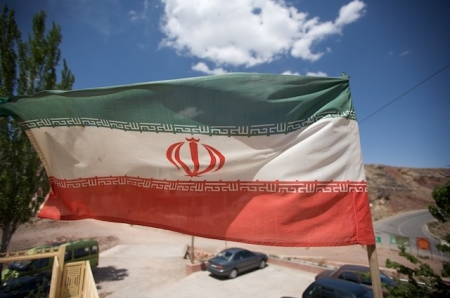Iran threatens to destroy tomb of Esther and Mordechai

The U.S. Commission on International Religious Freedom is raising concerns over unconfirmed reports that authorities in the Islamic Republic of Iran are threatening the destruction of the tomb of Esther and Mordechai in response to President Trump’s Middle-East peace plan.
The tomb is believed by some to be the resting place of the Old Testament queen Esther and her relative, Mordechai. Esther was the queen of the Persian King Ahasuerus. She is credited with helping save the Jewish people from being massacred.
The tomb is a popular pilgrimage site for Jews and Christians in Iran.
“USCIRF is troubled by reported threats to the tomb of Esther and Mordechai in Hamedan, Iran,” USCIRF stressed in a tweet. “[USCIRF] emphasizes the Iranian government's responsibility to protect religious sites.”
The congressionally-mandated bipartisan and independent international religious freedom watchdog body was responding to a report from the Alliance for Rights of All Minorities in Iran.
The organization posted on social media Sunday that the historic Jewish site is “at risk of destruction.”
“Iranian authorities are threatening to destroy the historic tomb of Ester and Mordechai in Hamedan and convert the site to a consular office for Palestine,” the Facebook post claims.
“Ester and Mordechai were biblical Jewish heroes who saved their people from a massacre in a story known as #Purim. Their burial site has been a significant Jewish landmark for Jews and history buffs around the world.”
“According to covering reports, members of Iranian #Basij [paramilitary] attempted to raid the historic site yesterday in an act of revenge against the Israelis Palestinian peace plan by President Trump,” the post added.
The United States-based nongovernmental organization watchdog group International Christian Concern reports that reports on Iran’s plans for the tomb are “unconfirmed.” But the NGO indicated that the alleged raid by Basij forces occurred last Saturday.
The Jerusalem Post could not confirm the “covering reports” cited by the alliance.
One initial report appears to have been published on Feb. 7 by Mohabat News, the Iranian Christian News Agency. The report cites a warning issued by the Council for Explaining Students' Mobilization of Hamadan Universities.
Although reports are unconfirmed, it would not be the first time that the tomb of Esther and Mordechai has been threatened.
As the Brooklyn-based Jewish Press reports, a group of Basij members from Abu Ali Sina University threatened to destroy the tomb in 2010 even though the tomb was labeled a national heritage site in 2008.
Additionally, the Jewish Press notes that authorities in Iran downgraded the status of the tomb in 2011 and removed a sign indicating that it was a pilgrimage site.
“The threat of the tomb’s destruction highlights Iran’s Jewish history and community. But it also runs parallel to several challenges that Iranian Christians face, as many of their charges following arrest are phrased within a framework of terms that connect them to Zionism,” ICC explained in a report. “The tomb of Esther and Mordechai are important to both Jews and Christians. But for local Christians to speak about the tomb at such a sensitive point in time would put them at great risk for further persecution.”
Several sites sacred to Christians and Jews have been targeted over the years by radical Muslims.
In 2014, the Islamic State destroyed the tomb of Jonah in Iraq.
Iran ranks as the ninth-worst country in the world for Christian persecution, according to Open Doors USA’s 2020 World Watch List.
In Iran, religious minorities are regularly arrested for worshiping in house churches and Muslim converts to Christianity are severely persecuted.
In early February, two women born into Muslim families who later converted to Christ and led two house churches in Iran spoke at a religious freedom panel discussion in Washington, D.C., where they outlined the experiences they faced.
Maryam Rostampour and Marziyeh Amirizadeh spent 259 days in Iran’s notorious Evin Prison. Even though they were sentenced to death, the two were released after much international pressure.
“We know first-hand how difficult it is for those who attend house churches because they risk their lives to attend house churches,” Amirizadeh said. “Any time if the government find out, they can raid the gathering, arrest people, torture them and confiscate their property.”
Dabrina Bet Tamraz, an Assyrian Christian whose father, brother and mother are imprisoned in Iran, also spoke at the event.
“Today, there is not a free church. There is no free evangelical church, nor free Pentecostal,” she said.
“The only churches that are allowed to function are orthodox or Catholic churches with restrictions. They are not allowed to have books in Farsi. They are not even allowed to, nowadays, print books in our own language. Any Christian literature or Bible even in our own language is not permitted. They are not even allowed to speak to a Farsi person near the church.”





















